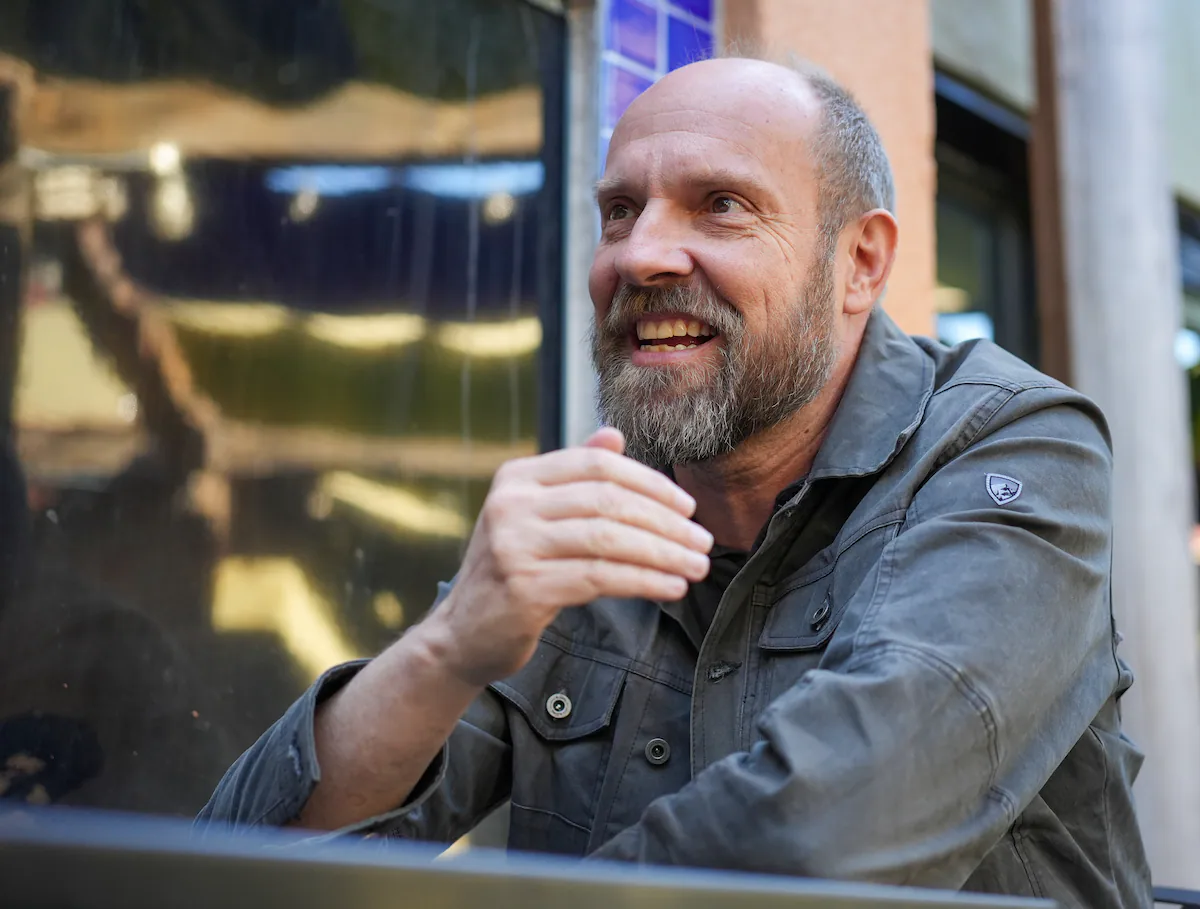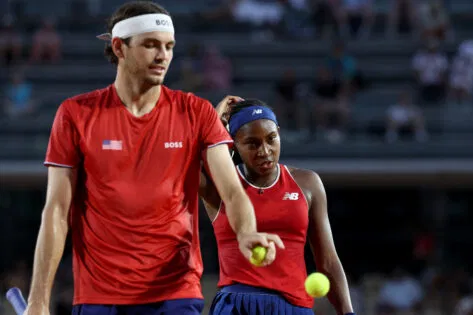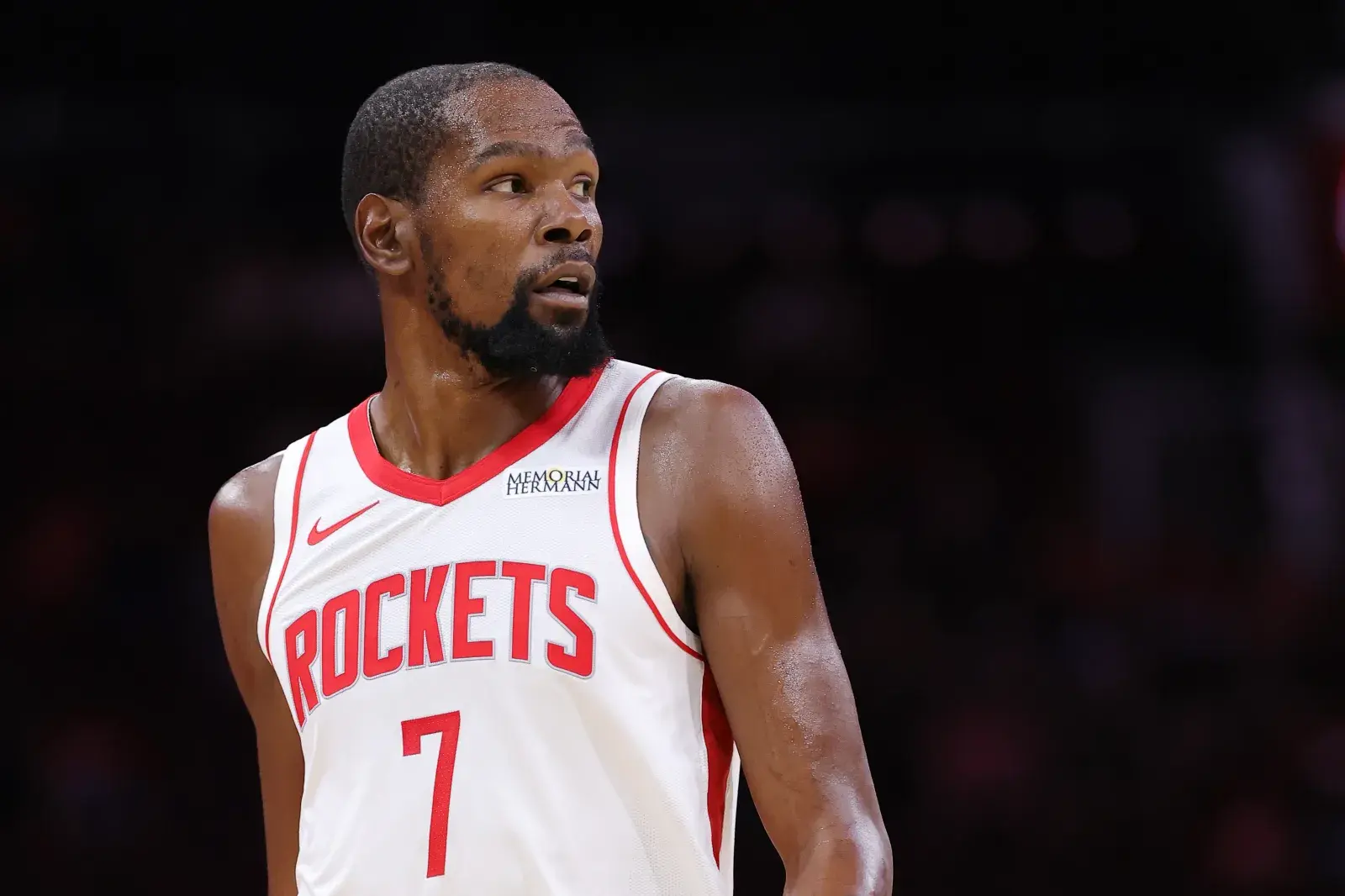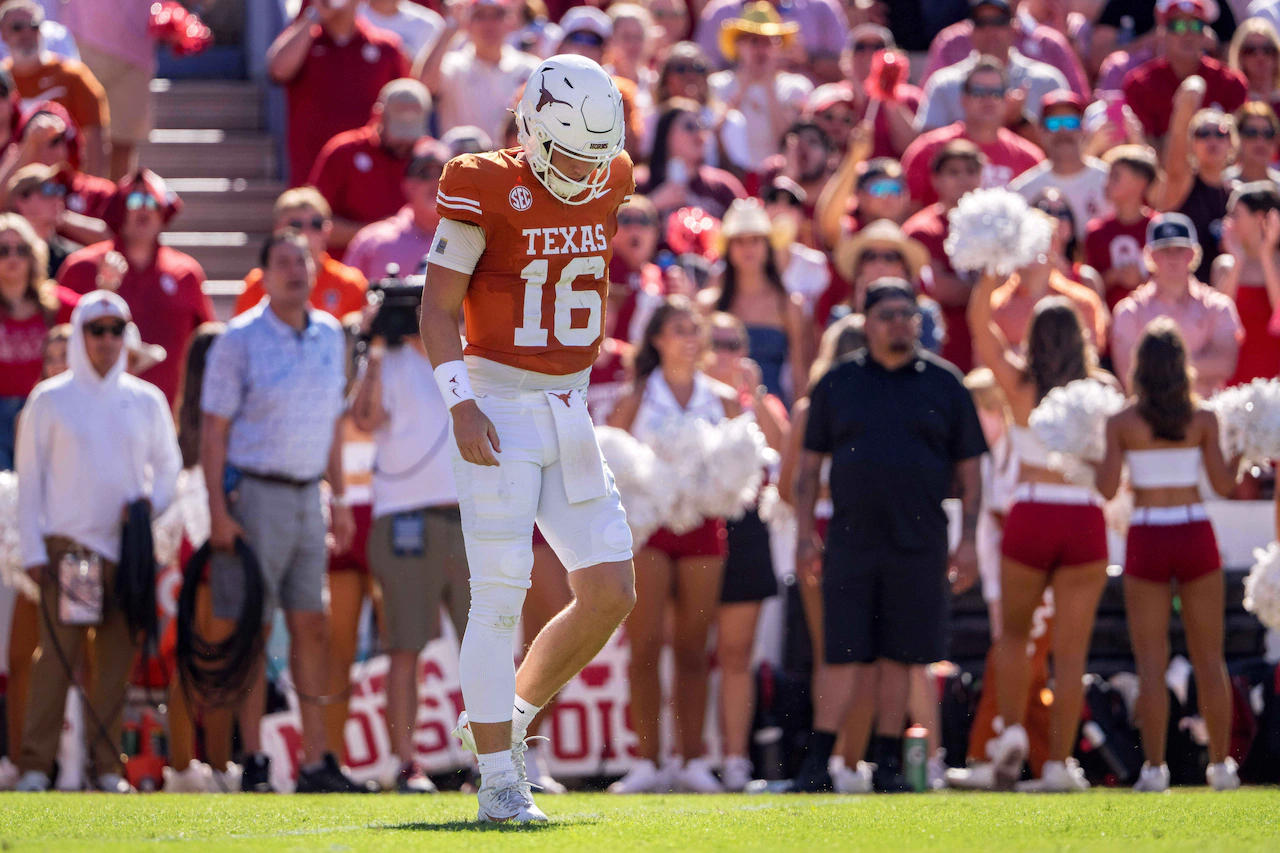Copyright Salt Lake Tribune

As he discusses important matters of the day, of every day, subjects such as world peace and how best to make and promote that peace, Chad Ford strokes his beard, taking on the professorial appearance of a man who’s hatching ideas to bring about the impossible. His intent and his professional training are to analyze and help resolve conflict — personal, political, familial, marital, religious, corporate, national, international — and to advance cooperation among sometimes angry and agitated humans. The whole of that quixotic endeavor, so needed across a troubled globe, is almost as difficult as correctly sizing up and ranking NBA prospects for ESPN, a pursuit Ford chased for years before getting the heave-ho from the network eight years ago in a mass layoff. Now he teaches at Utah State, a destination he reached after spending the better part of two decades at BYU-Hawaii. Just as all of that indicates, there’s a tale at every turn for Professor Ford, commencing with his upbringing in Kansas City, in the home of a father who earlier dodged bullets and bombs in combat in Vietnam and who carried with him the PTSD caused by it. On one occasion, Ford remembers his father hiding behind a couch, believing the Vietcong were in his living room. “I saw firsthand what war did to people,” he says, sitting on a seat in a Salt Lake City eatery. “I thought, ‘There just has to be a better way to resolve conflict.’” Ford studied conflict resolution in college — first, at BYU, where he sought to be a film director, and then at multi-cultured BYU-Hawaii, where he studied history and creative writing, and later at Georgetown, where he earned a law degree, and simultaneously at George Mason, where he, as a grad student, dove headlong into the intricacies and academics of peacemaking — he was sure that the pursuit of peace, understanding it and helping others find it, was his personal and professional calling. But … not so fast. Getting into sports While still in college, Ford and a friend, both of them huge sports fans, always hungry for information about their own faraway favorite teams, developed a website called SportsTalk.com. They gleaned and gathered links to online stories about NFL and NBA, MLB and NHL teams and made that info available to site visitors, starting in 1995. Their creation drew the attention not just of fans, but also of players, coaches, team executives and agents eager to learn what they could about all that was happening with other clubs and other athletes, maybe their own, as well, and also to send out either correct bits and pieces of news about their teams, or sometimes bits and pieces they wanted competitors to read and believe, factual or not. Ford’s vast network of sources grew larger and larger. “Then, we started making commentary about the stories,” Ford says. “That’s when it really took off.” The site transformed into a big enough hit to cause ESPN to buy it in 2000, and to employ Ford full-time as a columnist and analyst, specializing in the NBA and its draft prospects. “The NBA stuff started to sell,” he says. “My work on the draft was resonating.” And Ford was having the time of his life, talking on the reg with stars such as Michael Jordan, movers and shakers like Jerry West and Larry Bird. “Bird yelled at me once, and I liked it,” he says. “I felt like a kid.” At various junctures, a couple of teams — Detroit and Portland — asked Ford if he would be interested in joining their front offices. Nothing substantive came from those inquiries. As more time passed, though, the happy child within grew restless with studying and writing about basketball, deciding to leave ESPN to respond to the adult pull of his original call. A trip to Africa with Dikembe Mutombo initiated that move. Mutombo permitted Ford to tag along on one of the player’s many trips to his homeland, where the big man helped promote basketball, opportunities to play the game, and also raise funds for numerous worthy causes, from building hospitals to striving for clean drinking water to stirring greater access to education for African children. Ford found himself drawn more to the good deeds than to the good dunks. “Dikembe was a great humanitarian,” he says. “When I told him I wanted to go with him to the library and clinics he was building to write about those things, he said to me, ‘Why are you covering the NBA? You have this other knowledge and interest that would have a bigger impact on the world. It’s much more important.’ “That was life-changing for me.” Not long thereafter, in 2005, when BYU-Hawaii offered Ford a directorship and professorship in its new peace-building program, he was willing to walk away from ESPN’s basketball coverage — and the money it provided him. He remembered the positive experience he’d had as an undergrad there, having built many meaningful friendships with international students and faculty, relishing the vibe at the school. Upon Ford’s departure, ESPN noted a steady decline in Insider subscriptions and asked him to return. BYU-Hawaii allowed him to concurrently teach and to do NBA draft analysis, as he spent just more than two-thirds of his time with his university concerns and just under one-third collecting and presenting prospect data. Ford whiled away major portions of that time over a 12-year span in both jobs flying from the islands to the mainland and back. He often made appearances on the network, in addition to observing college and international players firsthand, filing reports and writing his columns. All of which was good, until it wasn’t. At one point, a Reddit user publicized the fact that some of Ford’s past player rankings had been altered retrospectively; successful players were moved up, less successful players were moved down. Ford denied any wrongdoing. ESPN believed Ford, issuing a statement backing him, and the so-called World-Wide Leader kept him aboard, even extending his contract. Still, a couple of years later, in 2017, when ESPN laid off a hundred employees, some of them rather famous figures, Ford was one of the casualties. While nobody smiles at getting fired, Ford says, looking back, that was a moment to celebrate. It compelled him to lighten his personal load, to travel away from home less, to focus on his more significant pursuits, professionally and personally. Invasion of irony In the midst of that, irony invaded. For all of Ford’s emphasis on teaching conflict analysis and resolution in the classroom, applying principles of peace nationally and around the planet — he worked and continues to work with organizations in the Middle East, seeking an end to hostilities there, constantly speaking at conferences on finding ways to smooth over disruptions of various kinds, writing books about making connections and building bridges — he rather paradoxically found himself in turmoil at home. As he attempted to solve macro-problems, after years of struggle, his marriage to a woman with whom he fathered and raised four kids ended in divorce. “That was the worst time of my life,” he says. “Here I’m teaching conflict resolution and I can’t fix my own marriage. It wasn’t working. I honestly thought about quitting the conflict work. I felt so much shame. I wanted to go hide in a cave. I had people telling me how disappointed they were in me. …” He hesitates. “I got through it.” He picked up the pieces, living and learning and healing as he went, gaining greater empathy for those in conflict. He remarried while still in Hawaii to his social worker and therapist wife, Amanda, utilizing all the educational tools and experience he’d gained to reconstruct what he says almost all conflict resolutions and peace restorations come down to, at global and local levels — properly tending to relationships. “Amanda helped me see something — you don’t have to be perfect to be a mediator,” Ford says. “The question is whether you learn from it. I talked about my own weaknesses. Sometimes I’m good at conflict resolution, but I’m not perfect. That actually helped me. It gave me a desire to get better. I made a lot of mistakes, but gained understanding. That’s true for most of us in conflict, sometimes we get it wrong.” Ford says all conflict is relational, whether it’s internal, in families, in communities, in companies, in countries, in religions, in politics: “Human beings drive conflict. It’s human beings inside of these systems. We have to learn to live and work together even though we have differences. It comes down to relationships, relationships, relationships. Finding out where’s the breach been in the relationship, and how we can reach out and repair the breach.” That repairing can be complicated, but Ford leans on the teachings and writings of Dr. Martin Luther King, who peacefully helped generations of Blacks and people of all races to grasp a better way of easing tensions and landing on solutions to the breach Ford mentions. When his people were being persecuted, King’s response wasn’t to lash out with violence, and it wasn’t to just smile and take it. It was to protest and sometimes use civil disobedience to show the world the injustices while simultaneously showing compassion for those working for and against him. “That’s powerful,” says Ford. “You can be right with the facts, but wrong in the relationship [building]. If I mistreat you in being right, then I’m wrong.” A religious man himself, he also utilizes the teachings of Jesus in the New Testament, applying them to complex modern problems. “We have to think that harsh words create harsh words,” he says. “Jesus did best practices in conflict. He is not afraid to speak his truth, but the compassion and love he shows for the least of these were what attracted people. We’ve lost that. What Jesus saw and taught was a direct parallel to what’s happening today.” Ford says people no longer think it’s OK to disagree. They, often via social media, fall into deep bubbles of thought and stay there, come what may: “We’ve got to break out of those bubbles and find the beauty in others.” Essentially, he stresses humans are not all the same, they don’t think the same or act the same or look the same, nor should they be expected to be or do that. And it’s all right. “That would make for a boring world,” he says. But without understanding and tolerance, minus an intention to connect with others, the aforementioned trend of taking a stand and trying to conquer by dividing people and en route shattering both the individual and the greater good is dangerous. Folks don’t have to see exact images of themselves around them to be good neighbors. Ford says as a part of projects working for conflict resolution in the Middle East, he’s talked with Palestinians and Israelis who believe differently, but who live side by side in peace, building peace and trust from the ground up. Best case is if that’s accompanied by serious efforts from leaders, from the top down. “Sometimes the best ideas come from conflict,” he says. “Better than one person on one side saying, ‘This is the way it’s going to be.’” When the latter happens, tranquility doesn’t typically last. “You even see [difficulties] at times in faith communities,” Ford says. “In the same faith communities. Leaders tell me the biggest problems they have aren’t from faith to faith, they’re within the same faith. How do we have the tools to navigate the conflict? Diversity should make the relationships stronger, not weaker. We have to learn to love our neighbor without agreeing with our neighbor.” Even if that neighbor worships differently or doesn’t worship at all, even if he or she watches a different news network or voted for a different political candidate. Advice for fans in Utah A little over a year ago, while still based in Hawaii, Ford noticed an opening at Utah State that caught his attention, one dealing with his academic specialties. He had known another USU professor, Patrick Mason, who he says “recruited” him to Logan. He decided to go ahead and make the move from the islands to the mountains. He teaches a number of classes at the school, one on peacemaking, another on transformative mediation, another on bridging religious differences, and yet another on religion, violence and peace. He says his classes are packed with students eager to solve the troubles they see around them. Ford also works on other projects that deal with those same subjects, some of them inside USU’s Heravi Peace Institute, a collection of faculty that offers workshops and does research on peacemaking. “I’ve been teaching for 20 years,” he says. “This generation of students is frustrated with so much political polarization. We’ve left them a broken world and they want tools to fix it. They’re hungry for that. They want to make a difference in the world.” One of the reasons Ford came to Utah was because he believes, with the state’s unique demographics, it has the chance to be an example to the rest of the nation as to how to overcome differences, spanning from the political to the personal, the racial to the religious. He’s no fool. He is fully aware of the complexities involved in bridging gaps. When he recently was working in the Middle East, he says one of the individuals involved in that project asked him: “Chad, why are you working here? Why aren’t you at home with all the problems back there?” That hit him like a swinging sledgehammer to the forehead. He returned, determined to further his path to peace in Utah. “It’s a place where lots of people can live, work and thrive,” he says. “We have to work locally. There are plenty of opportunities here to build bridges, to find skills for people to benefit their family life, their professional life, their religious life, learning to navigate their communities. Peacemaking is not that everyone has to agree. No, it’s a matter of people finding ways to treat each other with kindness, respect and decency. “World peace may be impossible, but peace in my family, peace in my congregation, peace in my community, that can happen.” As for the NBA and other sports, Ford still carves out some time to follow them. People on the outside remember his stint at ESPN, some asking him questions, seeking his opinions about this issue or that player, on how he feels about what the Jazz are doing. His response? “I tell them, ‘Ace Bailey’s performance won’t save your marriage.’” It won’t save your peace of mind, your familial peace, your community peace, your political peace or your world peace. Neither will Chad Ford’s efforts, not in every case, and he knows that. “But,” he says, “I’ve always been of the opinion that you have to do what you can.” So, he does. When the talking ends, he strokes his beard again and says, “Well, I’ve got to head back up to Bristol … err, I mean Logan.” Perfect. Peace out, Professor.



